Three sports people from Murcia, preselected for the Río Paralympic Games 2016
The director of the Spanish Paralympic Committee, Alberto Jofre, presented today in the headquarters of ElPozo Alimentación in Alhama, Murcia the three sportsmen and women from the Region of Murcia preselected (the definitive list will be known the first fortnight of July) to participate in the next Paralympic Games in Río: the athletes José Antonio Expósito and Lorenzo Albaladejo and the yachtsman Antonio Maestre.
The games, which take place in Brazil between 7 and 18 September, represent “the second most important sports event of the year after the Olympic Games”. This year there will be “110 sportsmen and women (10 of them as support) who will compete in 15 of the 22 Paralympic disciplines”, including, for the first time, canoeing and triathlon.
The director of the Spanish Paralympic Committee highlighted “the essential support of the ADOP (Paralympic Sport Support) plan” in the preparation of the paralympic sportsmen and women, which is made up of a nurtured group of supporting organisations which since the economic crisis started, “not only have they not reduced, but the number of participating companies has increased”, as is the case of ElPozo Alimentación. In addition, he emphasized the important medical support from the Murcia delegation Francisco Esparza, essential for the preparation of the paralympic sportsmen and women.
Another of the novelties which Jofre highlighted is that to the four federations which make up the sportsmen and women depending on the type of disability–the Association for the Blind (FEDC), People with Physical Disability (FEDDF), People with Intellectual Disability (FEDDI) and People with Cerebral Palsy and Acquired Brain Damage (FEDPC)-, you can add seven sporting type federations more which will provide sportsmen and women for the paralympic team. This reality is, he stated, an example of “the integration process of people with disabilities into the Spanish sporting federations”, an integration which “has already happened in other fields of society, such as work or education, which in sport has had a certain delay”.
José Antonio Expósito, who has three medals from the Paralympics of Sidney and London, stated that he will face the next games in Rio “with the same enthusiasm and illusion” which he has always brought to his sport in a year where he expects “to be on form for Europe and the Games, to show that, after two years away from the winners’ podium”, he has come back “with strength to recover the place he deserves”.
Lorenzo Albaladejo gave his thanks “to the business and press support for disabled people’s sport”, which contributes to the “necessary regeneration of the paralympic team,” a challenge “which we must take on between us, to make ourselves a reference in disabled people’s sports”. The athlete stated that he expects the “great photo” which is the Paralympic Games “be the reflection of daily projects and initiatives so that paralympic sport represents the values of Spanish society, an inclusive society where disabled people can achieve what they set out to”.
The assistant managing director of elPozo Alimentación Rafael Fuertes, said he was, on behalf of the business group which he represents, “proud of the welcome received in the ADOP plan family”, which the food company joined in 2015. The plan allows ElPozo Alimentación “to participate as a company in the values which paralympic sport represent”, and “to carry the Spanish flag and Murcia in sport”, in this “great work (that of ADOP plan) which will see its fruits in the next Paralympic Games in Rio ”.
Lastly, The Director General of Sports of the Region of Murcia, Alonso Gómez; took advantage in his speech to “praise the paralympic sportsmen and women for being examples of the values of overcoming difficulty, solidarity and camaraderie”, and the participating entities and supporters of the ADOP plan for “contributing to the Administration’s effort to achieve greater objectives”.
The Río Paralympic Games in 2016 will be a sporting event of the elite during which more than 4,350 sportsmen and women from 176 countries will compete in one of the more than 528 medal tests. Spain has always been among the first places of medals in the Paralympic Games, and faces this event after four years of hard preparation since the last edition in London 2012, where the team won 42 medals (8 gold, 18 silver and 16 bronze) and 83 paralympic diplomas.
Among the great objectives of the Spanish Paralympic Team is to transmit values such as effort, overcoming difficulty and team work to society via the success of the paralympic sportsmen and women.

